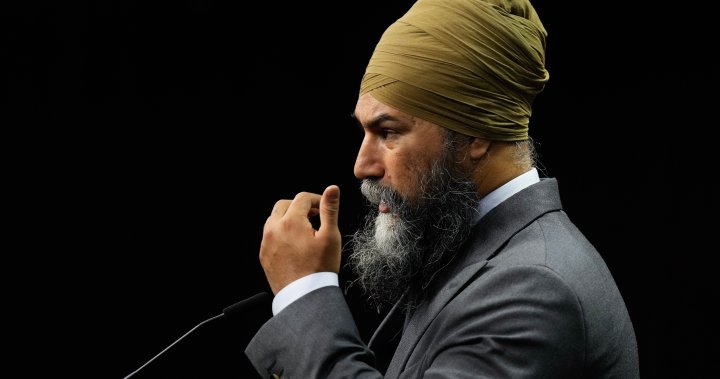NDP Leader Jagmeet Singh stated that while his party does support the quick passage of foreign interference legislation in the House of Commons, they did not support a Conservative motion to expedite the process. The motion introduced by Conservative foreign affairs critic Michael Chong sought to speed up the passage of Bill C-70, a bill aimed at addressing foreign interference, by June 12. The NDP opposed the unanimous consent motion associated with this, preventing it from being adopted by the chamber. NDP House Leader Peter Julian cited changes in the wording of the motion as the reason for their refusal to consent.
Singh emphasized that the NDP wants to hear from experts before passing the legislation to ensure it is in the best interest of Canadians. He mentioned that working with counterparts in other parties is crucial to improve the bill and protect citizens. Chong, who had been targeted by Chinese interference efforts as identified by CSIS, expressed his willingness to work with the government to pass the bill quickly. However, he criticized the NDP’s opposition and urged them to reconsider their stance to ensure the bill’s swift passage with adequate scrutiny.
Bill C-70 includes provisions to enhance CSIS powers in addressing foreign interference, introduce new criminal offenses for sabotage and political interference, and establish a foreign influence registry. Singh emphasized the seriousness of the issue and the NDP’s commitment to protecting democracy, while Chong criticized the NDP’s reluctance to expedite the legislation. Chong highlighted the impact of foreign interference on various Canadian communities and emphasized the need for timely action before the summer break. Public servants briefed MPs that it could take up to 12 months to implement the bill’s measures once passed.
BC NDP MP Jenny Kwan stressed the importance of not just passing the bill but also implementing it before the next federal election. She emphasized the need for the bill to be effective in protecting all Canadians, not just parliamentarians or individuals impacted by interference. Kwan, who had also testified before the Hogue commission on foreign interference, highlighted the urgency of addressing the threat and ensuring the bill’s effectiveness. The discussions surrounding the legislation and efforts to combat foreign interference are ongoing, with various perspectives and concerns being raised by different parties involved in the process.













